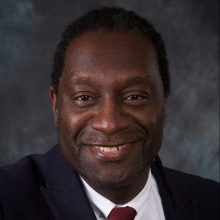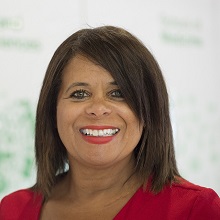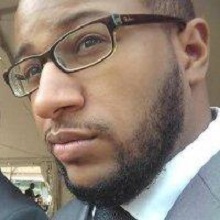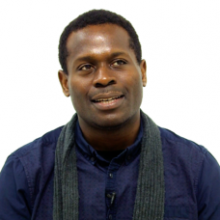Is the University Colonial?: Critical Conversations on Its Past, Present & Future
In this three-part series, the University of Connecticut's Office of Global Affairs and University of Nottingham’s Institute for Policy and Engagement will be hosting three online panel discussions, each with a focus on decolonizing education. Speakers will examine the role that universities have had in cultivating racism and (settler) colonialism, the present challenges they face in disbanding unequal and oppressive narratives, as well as the future opportunities to contribute meaningfully to an anti-racist and anti-colonial agenda.


Is the University Colonial?: Critical Conversations on Its Present
Monday, November 30, 2020
12:00 p.m. EST (UConn) / 5:00 p.m. GMT (Nottingham)
This virtual event is free and open to the public.
This second session considered the present with experts debating the current role of a university in cultivating inequalities. A recording of the panel discussion and post event Q&A can be viewed below. Various related videos, articles, podcasts, books, and websites are listed under the Resources tab.
Join the conversation on twitter @UConnGlobal and @UoN_Institute use #decolonizingtheuniversity / #decolonisingtheuniversity.
Remarks by:

Councillor Leslie Ayoola
Nottingham City Council
Twitter: @LeslieAyoola
Panelists:

Gina Higginbottom, Ph.D., MBE
Emeritus Professor, Ethnicity & Health
University of Nottingham
Twitter: @GinaAwokoH

Dana Francisco Miranda, Ph.D.
Affiliate Research Scholar in Philosophy
University of Connecticut
Assistant Professor of Philosophy
University of Massachusetts-Boston
Twitter: @DanaFMiranda

H. Kenny Nienhusser, Ed.D.
Assistant Professor, Higher Education & Student Affairs Program
University of Connecticut
(Session Chair)
Twitter: @kennynien

Mark Overmyer-Velázquez, Ph.D.
Professor, History and Latinx Studies
Campus Director, UConn Hartford
University of Connecticut
Twitter: @mark_velazq

Onyeka Nubia, Ph.D.
Fellow of the Royal Historical Society
Teaching at University of Nottingham
Visiting Research Fellow
Edge Hill University and
University of Huddersfield
Post Event Q&A
Question 1
Who does the "burden" of decolonising fall on? From my own experience at university it's almost always POC students who actively challenge the notion that what we are being taught is not the "objective status quo". Also, who is the right person to put pressure on?
- Jess
View the answer here
Question 2
How are universities in the United States confronting their roots in slavery/colonialism as institutions? Are there lessons for the United Kingdom?
Question 3
I intend to write my dissertation on decolonising the law curriculum taught in university and whether this is possible. Conversations regarding decolonisation in university typically centre on changing the content of what is taught/diversifying the student/academic body. Is this useful without changing the methods through which we are taught? For example, standardised textbooks or the way lectures are delivered.
- Esther
Question 4
More recently there’s been an emphasis on decolonization in higher education. Why a sudden apparent interest in decolonizing higher education?
Question 5
What are the challenges faced by both the United Kingdom and the United States universities that prevent us from decolonizing the curriculum and preparing higher education graduates?
Question 6
What are successful examples of decolonizing university department? What made these efforts successful? How, if at all, are students centered and/or involved in decolonizing higher education institutions?
Question 7
Can universities be decolonized if the societies where they are located are not?
Question 8
Given the Black and Minority Ethnic (BAME) attainment gap you referred to in your talk, are there any statistics or research to support an awareness of BAME students or aspiring graduates that the attainment gap exists?